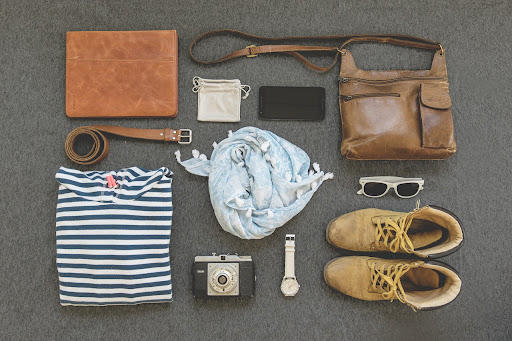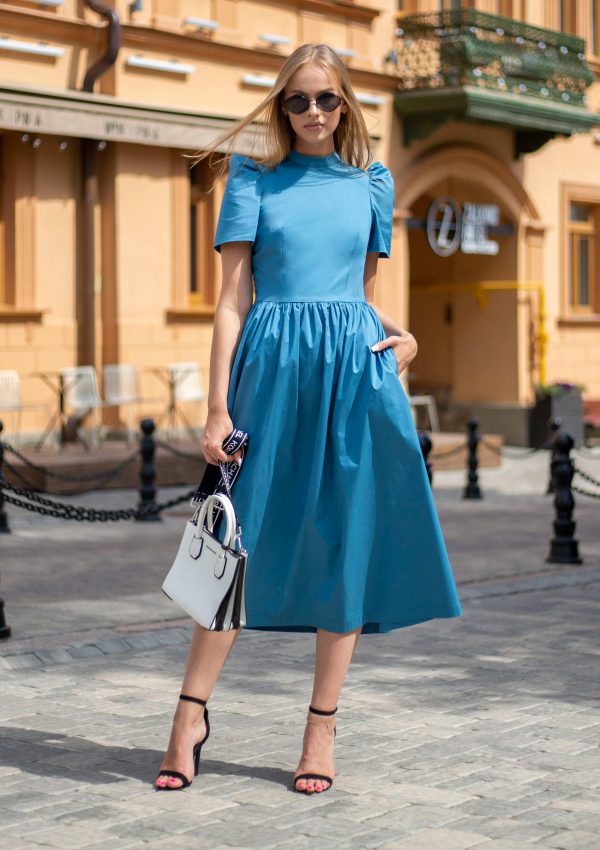Introduction
In a world where fashion trends change in the blink of an eye, a new paradigm is emerging—ethical and sustainable fashion. This shift is not just about what’s in style; it’s about embracing a conscious and responsible approach to clothing choices. What Does It Mean to Wear Ethical and Sustainable Clothes? This question is at the heart of a transformative movement that goes beyond the runway. Let’s delve into the intricate world of ethical and sustainable fashion, exploring its significance, impact, and how it’s reshaping the way we view clothing.
Why Choose Ethical and Sustainable Fashion?
In a society driven by consumerism, choosing ethical and sustainable fashion is a powerful statement. It signifies a commitment to responsible consumption, considering the social and environmental repercussions of each purchase. Ethical fashion involves prioritizing fair labor practices, ensuring the welfare of workers in the supply chain, and promoting transparency in manufacturing processes.
The Impact of Fast Fashion on the Environment
Before understanding the essence of ethical fashion, it’s crucial to acknowledge the detrimental effects of fast fashion on the environment. The rapid production and disposal of inexpensive, trendy garments contribute to pollution, resource depletion, and excessive waste. The fashion industry’s carbon footprint is substantial, making the adoption of ethical and sustainable practices an urgent need.
What Does It Mean to Wear Ethical and Sustainable Clothes?
What Does It Mean to Wear Ethical and Sustainable Clothes? It means making choices that align with ethical values and sustainable practices. From selecting garments produced through eco-friendly processes to supporting brands committed to fair labor, ethical fashion encompasses a holistic approach to clothing that goes beyond aesthetics.
Studying Ethics in the Academic World
In the academic world, ethics is intricately woven into various subjects in colleges and universities, reflecting its profound significance in shaping responsible professionals. Studying ethics alongside different disciplines is vital as it cultivates a holistic understanding of the moral implications within specific fields. Consequently, instructors often assign essay writing tasks on ethics to ensure students engage deeply with the subject matter. Surprisingly, even students in fashion-related professions grapple with these tasks, underlining the universal relevance of ethical considerations.
To aid in these endeavors, students frequently turn to online platforms for essay examples, with EduBirdie being a prominent choice. Students can find ethics essay on EduBirdie, it’s a rich repository of ethics essays, providing diverse perspectives and serving as valuable resources for academic exploration. Thus, the platform serves not only as an essay repository but also as a learning hub for understanding and navigating the complexities of ethical considerations across various disciplines.
Benefits of Embracing Ethical Fashion
Embracing ethical fashion goes beyond altruism; it offers tangible benefits to individuals and the planet. Sustainable materials often result in higher quality, durable clothing. Additionally, supporting ethical brands fosters a sense of community and shared values among consumers.
Ensuring Fair Labor Practices
One cornerstone of ethical fashion is the commitment to fair labor practices. This involves ensuring that workers involved in the production process are treated ethically, paid fairly, and provided with safe working conditions. Ethical fashion advocates for transparency, allowing consumers to trace the journey of their clothing from creation to sale.
Eco-Friendly Materials in Sustainable Fashion
Sustainable fashion relies on eco-friendly materials that minimize harm to the environment. From organic cotton and hemp to recycled polyester, the choices are expanding. These materials not only reduce the environmental impact but also contribute to the creation of a circular fashion economy.
Ethical Fashion Brands Making a Difference
A growing number of fashion brands are taking a stand for ethical practices. By incorporating fair labor, sustainable materials, and transparent supply chains, these brands are setting new standards for the industry. Names like Stella McCartney and Patagonia exemplify how fashion and ethics can coexist.
How to Identify Ethical and Sustainable Clothing
Navigating the fashion landscape becomes easier with a guide to identifying ethical and sustainable clothing. Look for certifications, check brand transparency, and prioritize quality over quantity. Investing in timeless pieces and supporting local artisans are also effective ways to contribute to ethical fashion.
Making a Fashion Statement with a Conscience
Ethical fashion allows individuals to make a statement beyond style. It’s a form of self-expression that aligns with values of responsibility and consciousness. Making a fashion statement with a conscience transcends trends, contributing to a sustainable and mindful approach to personal style.
Consumer Responsibility in Sustainable Fashion
Consumers play a pivotal role in driving the shift towards ethical fashion. By making informed choices, supporting ethical brands, and advocating for sustainable practices, individuals become catalysts for change. Recognizing the power of their purchasing decisions, consumers influence the industry to embrace ethical and sustainable values.
Addressing Common Misconceptions
Understanding ethical and sustainable fashion requires dispelling common misconceptions. It’s not synonymous with compromising style or breaking the bank. Ethical fashion is evolving, offering diverse, trendy options that cater to various tastes and budgets.
Exploring the Circular Fashion Economy
The circular fashion economy introduces a novel concept—closing the loop of production, consumption, and disposal. It emphasizes recycling, upcycling, and minimizing waste, paving the way for a more sustainable industry. Embracing circular fashion is a significant step towards reducing the environmental impact of clothing.
The Role of Innovation in Ethical Fashion
Innovation is driving the intersection of fashion and ethics. From lab-grown materials to 3D printing, technological advancements are revolutionizing the industry. These innovations not only enhance sustainability but also open doors to creative and futuristic possibilities in fashion.
Inspiring Sustainable Fashion Trends
Sustainable fashion is not confined to a singular style; it encompasses a spectrum of trends. From minimalist capsule wardrobes to vibrant upcycled designs, sustainable fashion trends inspire creativity and individuality. Embracing these trends contributes to a fashion-forward, eco-conscious lifestyle.
Social Media and Ethical Fashion Advocacy
Social media platforms serve as powerful tools for ethical fashion advocacy. Influencers and activists leverage these platforms to raise awareness, promote ethical brands, and encourage sustainable lifestyle choices. The digital space becomes a catalyst for positive change in the fashion landscape.
Ethical Fashion Events and Initiatives
The rise of ethical fashion is mirrored in the proliferation of events and initiatives dedicated to sustainability. Fashion weeks increasingly feature ethical showcases, and organizations host campaigns to educate and engage consumers. Participating in these events fosters a sense of community and shared commitment to ethical practices.
Balancing Style and Sustainability
Contrary to the belief that ethical fashion compromises style, it seamlessly blends aesthetics with sustainability. Designers are increasingly proving that fashion can be both conscious and chic. Balancing style and sustainability ensures that ethical choices are accessible and attractive to a diverse audience.
The Economic Aspect of Ethical Fashion
Ethical fashion extends beyond personal choices; it holds economic implications. Supporting ethical brands contributes to a demand for sustainable practices, influencing the industry’s trajectory. As consumer preferences evolve, ethical fashion becomes not just a choice but a driving force shaping the fashion economy.
Building a Sustainable Wardrobe on a Budget
Contrary to the misconception that ethical fashion is expensive, building a sustainable wardrobe on a budget is feasible. Thrift shopping, swapping, and investing in versatile pieces enable individuals to embrace ethical fashion without breaking the bank. It’s about mindful choices rather than extravagant spending.
The Future of Ethical and Sustainable Fashion
The future of fashion is intertwined with ethical and sustainable practices. As consumer awareness grows, the industry adapts. The future holds promises of increased innovation, widespread adoption of eco-friendly materials, and a shift towards a circular fashion economy.
Frequently Asked Questions (FAQs)
What are the key principles of ethical fashion? Ethical fashion is guided by principles such as fair labor practices, transparency, and environmental responsibility. Brands committed to these principles prioritize the well-being of workers, provide transparent information about their supply chains, and use sustainable materials.
How can I find affordable sustainable clothing? Affordable sustainable clothing is within reach through thrifting, swapping, and supporting local artisans. Additionally, many ethical brands offer budget-friendly options. Prioritize quality over quantity and invest in timeless pieces that withstand fashion trends.
Are there any celebrity advocates for ethical fashion? Yes, several celebrities actively advocate for ethical fashion. Emma Watson, Leonardo DiCaprio, and Emma Roberts are among those using their influence to promote sustainable and ethical practices in the fashion industry.
Can ethical fashion really make a difference? Absolutely. Ethical fashion, with its emphasis on responsible practices, has the power to transform the industry. By supporting ethical brands and making conscious choices, consumers contribute to a positive shift towards sustainability.
What role does technology play in sustainable fashion? Technology plays a pivotal role in sustainable fashion through innovations like lab-grown materials, 3D printing, and eco-friendly production processes. These advancements not only enhance sustainability but also pave the way for creative and futuristic possibilities in fashion.
How can consumers support ethical fashion movements? Consumers can support ethical fashion by making informed choices, advocating for sustainability, and supporting brands committed to ethical practices. Engaging in discussions, sharing information on social media, and participating in ethical fashion events contribute to the movement.
Conclusion
In conclusion, What Does It Mean to Wear Ethical and Sustainable Clothes? It signifies a commitment to a fashion revolution—one that prioritizes ethics, sustainability, and responsibility. As we navigate this transformative journey, each choice we make contributes to a collective impact that goes beyond style. Let’s embrace ethical and sustainable fashion, not just as a trend but as a conscious way of life.






